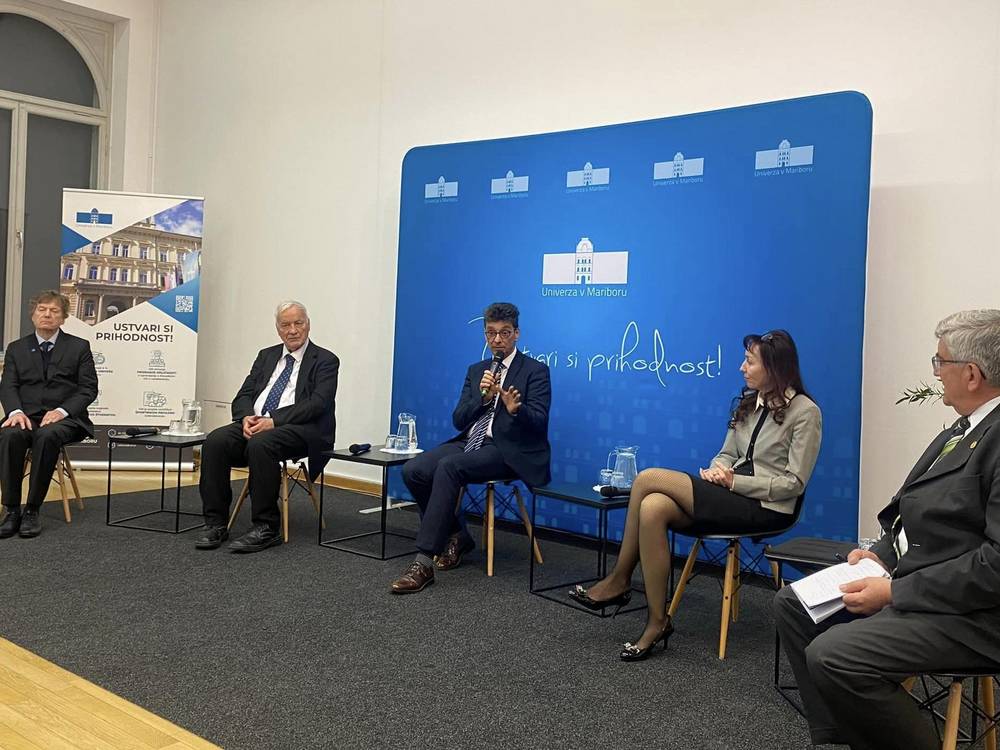On Monday, 18 March 2024, Human Rights Ombudsman Peter Svetina participated at a round table discussion upon the 75th anniversary of the adoption of the Universal Declaration of Human Rights at the Rector’s Office of the University of Maribor.
In the introduction, the Ombudsman brought the attention to the fact that on 10 December of last year, it has been 75 years since the General Assembly of the United Nations adopted the Universal Declaration of Human Rights. The document was created as a response to the atrocities of the Second World War and it established a new world order directed into the promotion and protection of human rights as a foundation of freedom, justice, and peace in the world. “Since that moment, human rights have been accepted as universal and indivisible and represent the fundamental values encompassing all cultures, religions, and continents. The Universal Declaration of Human Rights is the base for all further international legal and national instruments in the field of human rights. After its adoption, the United Nations have adopted more than 70 international treaties pertaining to human rights, while more than 100 international treaties have on its basis been adopted also by other international organisations,” emphasised Ombudsman Svetina.
He added that international mechanisms for the monitoring of the implementation of international standards of human rights are guarantors ensuring that the understanding of minimal standards of the respect of human rights is the same for all, regardless of where we come from. Thus, the respect of human rights represents an international care and the common achievement of humanity. “It is important that human rights can be felt by every individual. First and foremost, states or governments are responsible for ensuring and realisation of human rights, despite the fact that contemporary understanding of human rights is also spreading to the private sector, including business and industry. It is essential to raise awareness, promote and strengthen the culture of respect of human rights, to ensure greater accessibility to legal remedies, and to expand and strengthen informal forms of protecting human rights,” stressed the Ombudsman.
In 2023, the institution of the Human Rights Ombudsman considered more than six thousand cases and found more than 250 violations of human rights. “The violation of the principle of good governance has for years been the most frequently found violation followed by the violation of equality before the law and prohibition of discrimination. Hence, we cannot feel satisfied with the situation. Therefore, I expect from the competent institutions to act immediately and to make the provision of the respect of human rights their priority. Namely, numerous international recommendations have remained unrealised for years, just as far more than 100 recommendations of the Human Rights Ombudsman and increasingly more decisions by the Constitutional Court every year. Even though we still have much work ahead of us, we must not forget that we live in a country and region where from the global point of view life standard, including the respect for human rights, rule of law, and democracy, is relatively high,” also said Ombudsman Peter Svetina at the round table.

![[Translate to English:] Varuh kot govorec na okrogli mizi v Mariboru](/fileadmin/_processed_/9/0/csm_Varuh_na_okrogli_mizi_-_Maribor_39a71afc23.jpg)